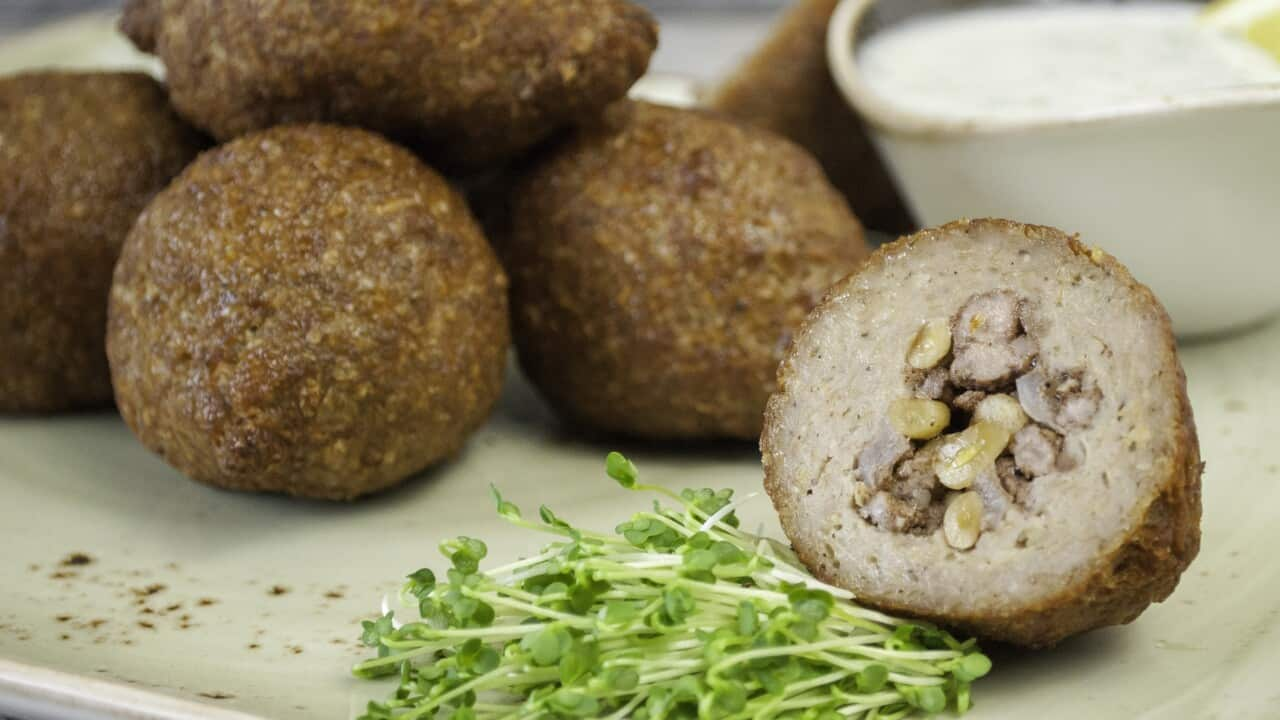In 1974, Julie Khouzame was only 20 years old when she emigrated from to Australia. Together with her husband George, she started one of the first Lebanese catering services in Sydney 35 years ago.
Their aim was to bring the cuisine they loved to a wider audience.
Her children Priscilla, Najee, Chady and George Jr recently helped their mother fulfil a long-held dream to open a restaurant. The result is , which opened in December. It's a Lebanese restaurant where Julie’s regional recipes and that of other Lebanese matriarchs – mothers, aunties and grandmothers – shine.
Bayti means “my home” in Arabic and the restaurant recreates her famous Sunday lunches.
“Every Sunday, we would invite family and friends to our house, I would cook traditional dishes and lay it all out on a big table,” Khouzame says.
“We did that our whole lives and to be able to share it with more people – that’s what brought tears to my eye[s] when we opened. “The story of our history is part of the menu. We have set menus, you come in – sit down, you don’t need to choose anything and the food keeps coming out. Just like it would at my house."
“The story of our history is part of the menu. We have set menus, you come in – sit down, you don’t need to choose anything and the food keeps coming out. Just like it would at my house."

Bread plays a key role on the Bayti menu. Source: Bayti
Bayti is based around the concept of “tawlet”, which means bringing women together around a table to share recipes, because it was the women who cooked for their families and learnt these recipes from their mothers.
The idea originated in Lebanon from chef . At his restaurant, writes the menu each day to showcase the cuisine from her particular region.
While the northern part of Lebanon is known for kebbe zghartweih (oven-cooked meat and burgul), the Baalbek region in the south is famous for safiha baalbakieh (meat-stuffed puff pastry). By sharing these dishes, it becomes a way to keep their culture and tradition alive so it doesn't die out.
Zgharta is the region in Lebanon where originated and Khouzame shared the recipe she learnt from her mother, with Bayti's chef. Rather than the traditional raw goat or lamb, Bayti uses salmon minced with prawn.
Every Sunday, we would invite family and friends to our house, I would cook traditional dishes and lay it all out on a big table.
“We are from the north of Lebanon and fish was not accessible, but we wanted to modernise this dish, which is one of the most prominent Lebanese dishes,” she says.
“Meat was a luxury for many back in those days, so no meat would go to waste and the red meat offcuts were ground in a mortar and pestle [to be used in kibbeh]. Where I’m from is renowned for kibbeh, so we wanted to link this dish back to my village.”
has also been given an update, wrapped in wood-fired saj bread rather than served with Lebanese bread.
“You get this dish on every corner in Lebanon and every suburb in Sydney now, but you don’t usually see it wrapped in bread,” Khouzame says.
“Saj was the first Lebanese bread that was established, it’s cooked on a round iron hot plate, the dough is spread very thin and there’s no sugar – so it’s easy to digest – while Lebanese bread is more light and fluffy.
“My parents and grandparents grew up eating saj bread and it was a big decision for us to use it instead of Lebanese bread, but people love it. Older people are happy to see it again and we’re introducing it to younger people."
Many cultures have a rice pudding dessert and Khouzame has included her take on the Lebanese version, , on the menu. Traditionally a home dessert, the sweet rice is flavoured with caraway, cinnamon, anise and other Middle Eastern spices, topped with shredded coconut and blanched pistachio, walnut and pine nut.
Traditionally a home dessert, the sweet rice is flavoured with caraway, cinnamon, anise and other Middle Eastern spices, topped with shredded coconut and blanched pistachio, walnut and pine nut.

Bayti serves dishes that aren't always typically served at Lebanese restaurants. Source: Bayti
“We've been cooking it for hundreds of years. When a child is born, it’s cooked as a celebration,” she says.
“You’ll definitely find it in every Lebanese home when a baby is born, but you can’t find it in any dessert shop. It’s a way to connect our guests to a nostalgic feeling for Lebanon.”
45 Macquarie Street, Parramatta, NSW (02) 9709 6588
Wed - Sat 7pm - 11 pm
More Lebanese flavours

A1 Bakery is the Lebanese heart of Melbourne's Brunswick










